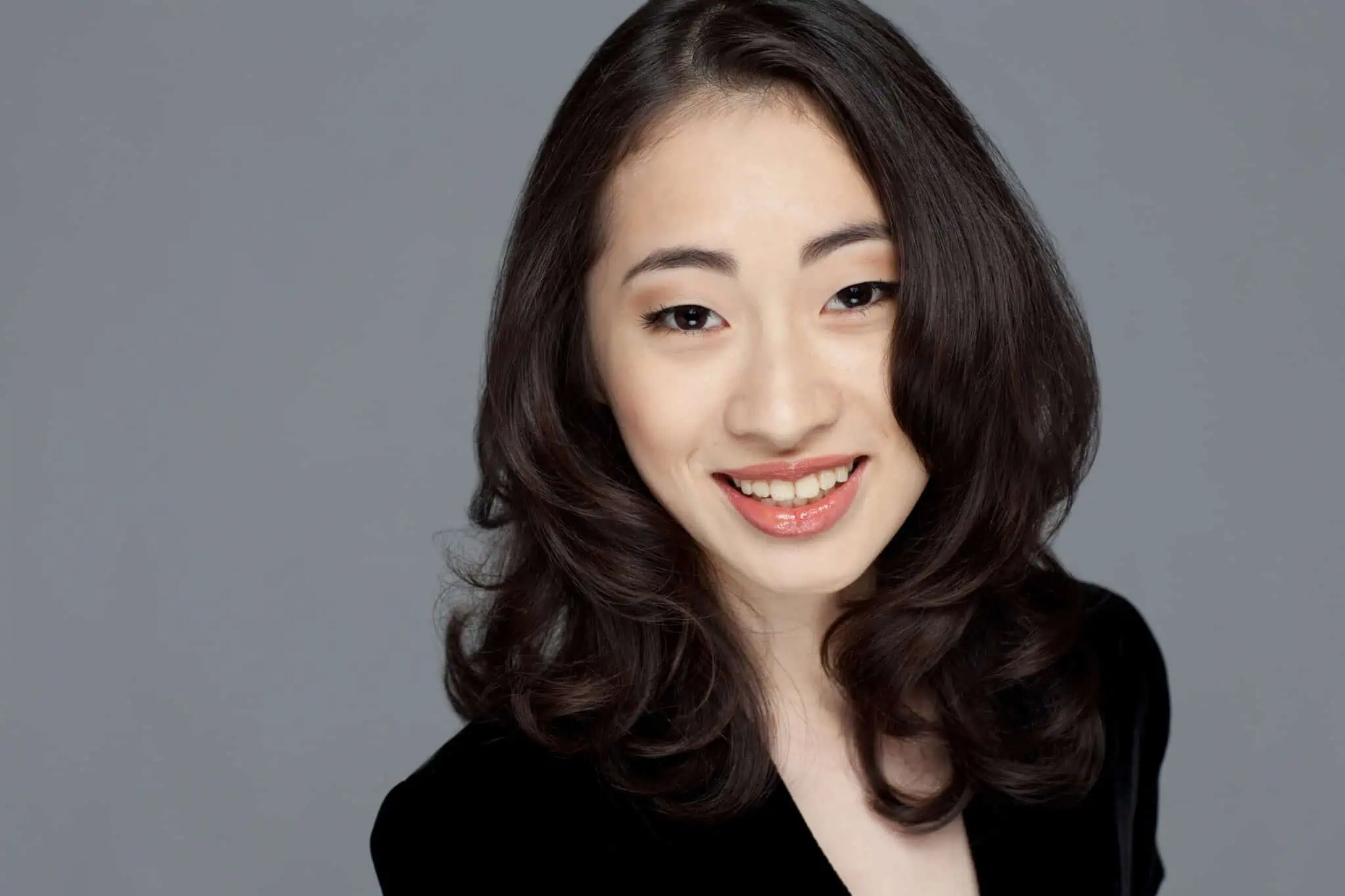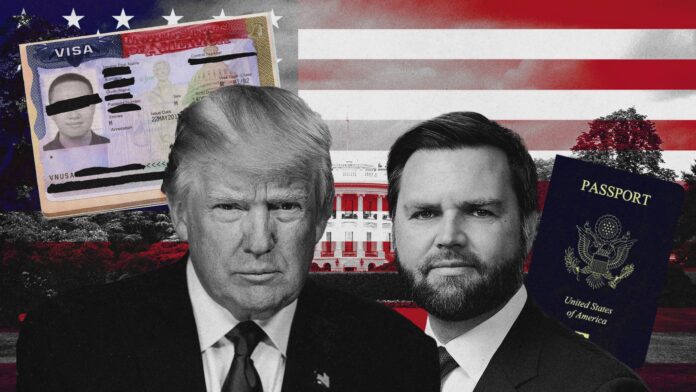I will never forget the summer of 2021 when I overheard my Ivy League career advisor say to a fellow international student: “Don’t worry about your work visa—you will marry an American one day and get a green card.”
That advisor’s dismissive laugh cut through the air, leaving me stunned. The student had been seeking guidance on companies that might sponsor visas, only to be met with condescension. I wanted to confront the advisor, to call out the racism in her words. But I couldn’t. My family was (and still is) thousands of miles away, and without legal or institutional support, I felt powerless. That moment crystallized a harsh truth: navigating immigration as an international worker in the United States would be a lonely, uphill battle.
The immigration journey that followed proved me right. Job offers evaporated in the final round of interviews when employers balked at my one-year Optional Practical Training (OPT) Visa, a work authorization program that allows international students to work in the United States for one year for most liberal arts degrees and three years for most STEM degrees. Despite my assurances that I’d self-sponsor my work visa once my student visa expired, most employers still did not want to get themselves into the trouble of supporting global talents. Yet, my story is just one among millions who are trying to make a home in the United States.
As we brace for President-elect Donald Trump’s second term, old fears are resurfacing with new intensity. Recently, H-1B visas—for highly skilled foreign workers—have been at the center of a fiery political and social debate. While some of Trump’s advisers advocate for expanding opportunities for skilled immigrants, the backlash from MAGA loyalists has reignited fears of xenophobia and policy unpredictability. Across the country, universities have also been urging international students and staff to return stateside before Trump’s inauguration on Monday, and the looming threat of renewed travel bans on people from predominantly Muslim countries, as well as harsher immigration policies, have many Asian international workers questioning their futures in this country.
A system in desperate need of reform
Lorenz Wolffers, a New York City-based immigration lawyer, tells JoySauce, “The U.S. immigration system is very rigid. A foreign worker’s background has to be a perfect match for one of the existing visa categories in order to get such a visa approved.” This rigidity, combined with mixed signals from the Trump administration, leaves many international workers in limbo. “We currently see opposing trends in the incoming Trump administration,” Wolffers says. “One group of Trump supporters is open to the idea that more skilled workers should come to the U.S. and that the process should be streamlined. Another group of Trump supporters, however, opposes any accommodation of foreign workers and would prefer to keep foreigners completely out of the U.S. job market. It is not clear yet which side will prevail and what direction the policies of the Trump administration will follow.”
For workers navigating this landscape, the H-1B visa program has become increasingly unreliable. Wolffers explains that the process is increasingly seen as a lottery of chance, rather than a reliable pathway for skilled workers. He highlights how arbitrary rejections, long delays, and heightened scrutiny make the process unpredictable, even for well-prepared applicants.
Dolores Chang knows this all too well. Originally from Beijing, Chang first arrived in the United States full of optimism in 2018. After graduating from an Ivy League university, she landed a reporter role at a New York media company, but found herself fixated on the ticking clock of her OPT visa. “It was hard to focus on my work when I knew my time here was limited,” she says.
Dolores Chang got lucky winning the H-1B lottery in 2023, but it came with restrictions on her career.
Courtesy of Dolores Chang
When she won the H-1B lottery in 2023, Chang felt a brief sense of relief, but it didn’t last. The restrictive nature of her visa left her feeling tied to one employer, with little room for career advancement. “It’s not just about getting a visa,” she explains. “It’s about how much of your life you have to put on hold, tied to one company, one job, with limited options for growth.” These constraints highlight the growing pressures on international workers as the immigration system becomes increasingly selective and unpredictable.
While Chang was fortunate to secure an H-1B visa through a lottery near the end of her OPT period, the process—which determines who can obtain these temporary visas—has seen a dramatic decline in acceptance rates in the past few years. For fiscal year 2025 (preselection started last year), only about 135,100 applicants were selected from more than 470,300 submitted, reflecting a success rate of a little more than 28 percent. This marks a sharp contrast to earlier years, such as 2021, when the process handled significantly fewer registrations—about 269,400—and still selected about 124,400 beneficiaries (about 46 percent).
The emotional toll, coupled with the rising anti-Asian hate, eventually pushed Chang to make a difficult decision: moving to Canada. Now living in Toronto and pursuing a law degree, Chang finds Canada’s immigration policies more inclusive and stable. “Uprooting from New York City to Toronto was a decision that came with significant emotional and financial costs, but I have never regretted it,” she says.
The cost of an “extraordinary ability”
As anti-Asian hate incidents surged during Trump’s first term, I navigated the overwhelming process of sponsoring my O-1 visa—an “extraordinary ability” visa shared by celebrities like Justin Bieber, Trevor Noah, and Hugh Jackman—at a personal cost of $7,000. I felt a mix of gratitude and entrapment, knowing that for Chinese and Indian nationals, securing a green card could take years, but successfully securing an O-1B visa within a month would allow me to work in the United States legally with indefinite renewal. However, the uncertainty continued to weigh heavily.
On Nov. 19, Kaidi Wu, a social psychologist born in Shanghai, now working as a career coach in this country after graduating from the University of Michigan, posted on X, commenting on the U.S. immigration policy: “Americans have no idea how difficult legal immigration is for ‘high-skilled immigrants.’ I have 4 degrees, including a PhD., an Einstein visa, 250K salary at FAANG. Lived in this country since I was a teenager. I won’t be able to obtain citizenship until middle age.”

Social psychologist Kaidi Wu has spent thousands of dollars navigating the visa process.
Courtesy of Kaidi Wu
The post resonated with more 52,000 netizens. Still waiting for her green card to arrive, which she applied for two years ago, Wu currently holds an O-1 visa. Despite her credentials, which include the aforementioned doctorate degree and postdoctoral work, Wu had to pay thousands of dollars out of pocket to navigate the visa process while advocating for herself to employers unfamiliar with immigration law.
“The system is arbitrary, exploitative, and expensive,” she says, adding that she was treated as a liability by companies unwilling to navigate visa sponsorship. “I’ve had job offers withdrawn because employers didn’t want to deal with the perceived hassle.” In one particularly demeaning encounter, an employer suggested she should feel “lucky” they were even considering her candidacy as an international worker.
Meanwhile, recent data from the U.S. Department of State illustrates the growing reliance on foreign nationals to sustain the U.S. economy. In the first half of 2024, the department issued nearly 5.2 million nonimmigrant work visas worldwide—a record-breaking figure compared to previous years. During the same period, more than 281,000 immigrant visas were granted. Yet for many Asian workers on temporary work visas, such milestones offer little comfort. Trump’s return to the White House could bring more than just policy shifts—it could mean being excluded from a society they now call home.
“We’re treated as outsiders, even when we’re building careers and communities here.”
“We contribute to the economy, pay taxes, and yet are excluded from basic benefits like unemployment or government assistance,” Wu says. Chang agrees, noting that international workers are rarely included in political discourse. “We’re treated as outsiders, even when we’re building careers and communities here,” she says.
In October 2024, Stephen Miller, a key figure in Trump’s former and upcoming administrations, declared that “America is for Americans only,” during a campaign rally at Madison Square Garden, echoing the hardline stance of the Trump administration. In a pre-election interview, Miller detailed an expansive plan to mobilize multiple federal and state agencies to identify, detain, and expel undocumented immigrants, housing them in tent camps until they can be deported.
Policies like these, combined with rhetoric that disparages immigrant communities, leave even those with legal status questioning their security. “Every day, you wonder if what you’re doing is enough, or if a policy change will upend everything,” Wu says.
As Trump’s second term begins, the future feels uncertain for many. Will the United States choose to embrace the diverse talents and perspectives that have long enriched its progress, or will it turn inward, guided by fear and exclusion? What remains undeniable is that the current system is failing—not only the individuals caught in its complexities but also the nation that thrives on their contributions. A more compassionate and inclusive approach is not just necessary; it is long overdue.

